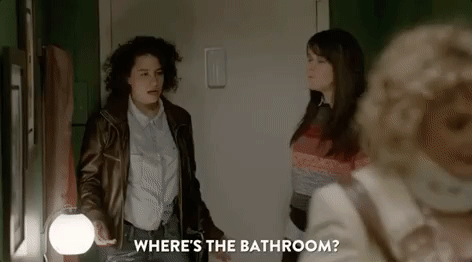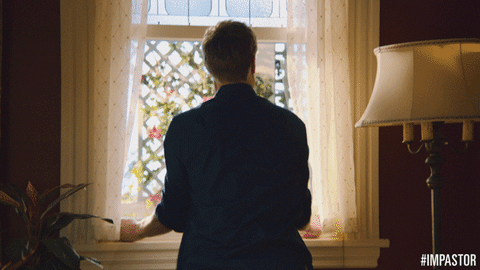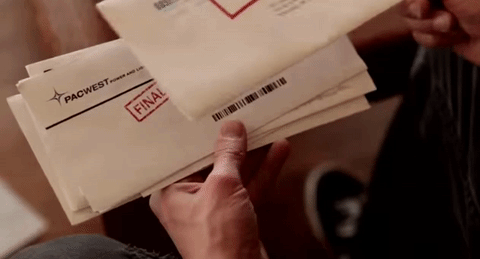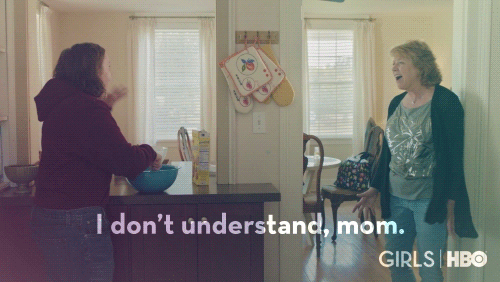
Going to university is an exciting time for every student, but the financial side of it can be quite daunting if you’re not well prepared. Don’t worry; read our top tips below so that becoming a cash strapped student living off baked beans doesn’t have to be your fate!
We totally understand that whilst you are a student, you will want to have fun before settling down with commitments such as a steady job, getting on the property ladder etc. Travelling, nights out, movies and gadgets are the usual trappings of a typical university student but not having enough money to enjoy these can lead you to feel miserable and like you are missing out on some of the best years of your life.
On a more serious note, funds running dry early on can also lead to spiralling student debt (especially with easy access to credit cards and bank overdrafts) which can cause you a lot of stress and even depression if it gets out of control.
So, in a bid to help you enjoy your life at university whilst stopping you from getting into serious debt, we’ve put together some useful and actionable tips to help you on your way.
- START BUDGETING
Learning how to budget properly and developing the discipline to stick to a weekly or monthly budget requires effort and willpower, but it is actually an incredibly important lifeskill which has far reaching consequences beyond life at university. If you manage to crack this in your first year of study, we can pretty much guarantee that it will serve you well for the rest of your life and help prevent you from getting into serious debt – the consequences of which are pretty bad.
Beware of a false sense of security at the start of term when you have your just received your student loan monies and it feels like you are pretty rich! Before you know it, you have already started spending those pretty pounds on nights out, new clothes and a fancy new hairstyle. If you’re not careful though and don’t have a proper budget drawn up, you might get yourself into trouble and end up with not enough money for food or rent. Sticking to a weekly/monthly budget will avoid these problems and at the end of term if you find you have a bit more left over than you thought you would, you can enjoy yourself without feeling guilty about it.
Make a start by listing all of the necessities; rent, food, travel, books/equipment, clothes and mobile phone. After paying for these expenses, see what you have left over and then plan your social calendar accordingly e.g. allocating £20-30 on a night out is fairly reasonable – be it catching a movie, eating out or having a few drinks at the local pub.Once funds run dry, make a point of heading home and calling it a night.
- BAG SOME FREEBIES
From free nights out to free furniture, take advantage of your status as a student and save yourself a load of cash in the process!
Socialising
Given that social activities are likely to take a hefty chunk out of your monthly budget, it’s definitely worth scouting out the free entertainment and events that most universities offer to students. Information is usually well advertised and can be found on faculty and students’ union notice boards, university newsletters and on social media. Events aimed at students also offer discounted food and drink so you can have a great night out for less than what you might expect.
Merchandise
You may have not thought about this one but freshers’ fairs are the perfect place to not only find out about products and services which are beneficial to you as a student but they are also great for getting a whole load of free stuff including pens, keyrings, mugs, T-shirts, notepads, wall calendars, snacks and much more. Brands are constantly trying to connect with university students as a demographic so make the most of your status and bag those freebies! Don’t forget that there are other places you can get free stuff from make-up to food and magazines – check out your local supermarket and food outlets for such promotions as well as online at sites like www.freebielist.com
Facebook Groups and Exchange Websites
If you are looking for furniture for your new student pad then be sure to check out relevant sites and Facebook groups online – you’d be surprised at what you might find. Most students tend to head to brick and mortar stores but you could be missing out on some amazing freebies if you don’t include the internet as part of your search. Exchange websites like www.freecycle.organd relevant Facebook groups list all sorts of items from furniture, books and even bicycles that students are giving away free of charge. Not only is recycling good for your wallet, it’s also good for the environment so you really can’t go wrong.
New Store Openings
New bars and restaurants that are launching in the area are a great place to get free food and drinks as that is how they attract new customers. Similarly, other new shops that are launching – be it a grocers, hairdressers or clothes shop – will offer promotional goodies like T-shirts, keyrings and balloons as well as introductory discounts on stock so it’s always a good idea to check them out. Store openings are usually advertised around town and in local newspapers and on radio stations so chances are you will know about them when they happen.
- GET YOUR NUS CARD
Don’t be lazy and get an NUS Extra card as soon as possible. The card costs just £12 a year or £32 for three years and offers students hundreds of discounts and offers at popular retailers – both online and in-store including Pizza Express, Amazon, Odeon and Topshop to name a few. It is estimated that on average, students can save £532 a year which is definitely worth your efforts in applying for one. If you haven’t got yourself one yet, you can apply here:
https://cards.nusextra.co.uk/
MAKE YOURSELF A RAILCARD
If you travel on the train frequently and spend more than £90 per year then getting a 16-25 Railcard is an absolute must. Railcards slash a hefty third off the cost of your train ticket andwill set you back just £30 for the whole year or £70 for three years. The savings really add up if you are frequent train passenger plus having a card also encourages you to explore other places due to the discounted fares. To save even more money, plan trips well in advance and you will get the best savings. Remember to also carry your card on you at all times as ticket inspectors require a valid card on the spot, otherwise you will have to pay the full fare.
Bonus tip: If you are looking for a student friendly bank then look into opening a student current account with Santander who not only give you an interest-free overdraft of up to £1,500 but also include a free railcard for four years.
- MAKE YOUR OWN MEALS
Eating out regularly is very expensive – and we don’t mean nice restaurants for a treat! Grabbing a quick coffee and croissant in the morning plus a sandwich, drink and crisps at lunch will cost you up to £15 per day depending on where you go, which is certainly food for thought!You can slash this cost down to just a few pounds per day if you eat breakfast from home and take your lunch to work with you. Home cooked food also tends to be healthier as it’s not loaded with preservatives and extra salt and fat just to improve flavour and extend shelf life.
Additionally, make sure you are sensible about leftover food and either make the intention to eat it the next day or freeze it as soon as possible. You can also cook larger quantities of food (which often doesn’t take much extra time and is more cost effective) and freeze portions which can be very helpful when you are too busy, sick or tired to cook.
- DON’T OVERPAY ON BILLS
Sometimes students don’t know which discounts they are entitled to on their bills and end up overpaying without realising. Here are some you should be aware of:
Council tax – Full-time students living on their own or with other students are not obliged to pay council tax – regardless of how many of you are living in the property. Also, if you live with a non-student, you are still eligible to receive a 25 per cent reduction in your council tax. Discounts are not automatically applied; you must get in touch with your local council and follow their process to ensure you get a valid exemption.
TV licence–A good way round paying the full TV license fee is by watching on demand e.g. through BBC iPlayer on your laptop, tablet or mobile phone. If you prefer to enjoy programmes on the TV (like most of us do) then you are still entitled to claim a refund for the months you’re your accommodation is empty in the summer – which can be up to £37. Don’t be lazy about claiming even if it seems like a small amount – every penny counts.
- PRE-LOVED ITEMS ARE YOUR NEW FRIEND
You can save a huge amount of money not to mention being kind to the environment by simply choosing to buy items that have been used before – be it furniture, books and even clothes. Even if you are not the type to typically go for second-hand stuff, it makes perfect sense to try it out as a student as you aren’t buying furniture for your own home or clothes for the office. Everyone is aware of the places online you can pick up used items such as eBay, gumtree and pre-loved but you can also find hidden gems at your local charity shops, car-boot sales and even listings in local newsletters and papers. Also check your students’ union and faculty noticeboards for listings of second-hand books, furniture and other items. You will be surprised at how much cheaper you can get such items and don’t forget, you can also negotiate prices on second-hand goods.
- BE RESOURCEFUL
Books, stationary and printing costs add up quickly and that’s just for the standard classroom based degree course. Other courses such as photography and architecture require additional investment in equipment, field trips etc and the costs can really mount up. You can spend less by buying second-hand books and also looking online for downloadable PDF files of the books which you can read on your phone or laptop (you only need to print chapters which are absolutely necessary). Many books are also available on Kindle and are much cheaper than their printed counterparts. Used equipment can be sourced from older university students who often post adverts on the faculty noticeboard. If you live with students who are studying on the same course as you are, think about how you might be able to share books and other resources with each other to save on costs.
- GET A STUDENT BANK ACCOUNT
Preparing for university also includes the boring but necessary task of opening a student bank account. Banks offer a whole range of freebies and deals to entice students to sign up as they will usually stay with the bank for life. Perks can include free railcards, shopping vouchers, cash-back schemes, free cinema tickets and whole lot more. It’s easy to get drawn in by such offers but the most important thing to look out for is the facility of a zero per cent overdraft which will help take care of unexpected expenses.
Many of the high-street banks offer first-year students generous interest-free overdrafts of up to £3,000 to help you transition into your new life as a student. Be warned though, having a large overdraft doesn’t give you the green light to blow it all in your first semester and then spend the rest of your studies living in your overdraft or worse -going over your limit and being charged fees by your bank. Be sensible and reserve dipping into your overdraft for only when you really need it so you don’t end up getting into debt.
- LOOK FOR A PART-TIME JOB
One of the best ways to avoid getting into debt as well as having extra money for a few treats now and again is by getting a part-time job – especially in your first year at university when the workload is manageable and grades don’t count towards your final degree classification. If you think about the amount of time you might spend watching movies, playing on the X-box or socialising at the local pub, you can probably work a part-time job instead without it affecting your studies. Remember, if you decide to work then check that your employer is paying the right amount of tax; for 2017/18 the income tax threshold is £11,500 – which means that anything you earn up to this amount is not taxable. If you think you have paid too much tax then you can check the HMRC website for advice on how to get a refund.
- STOP SMOKING (AND DRUGS)
If you are a regular smoker then you could be literally burning a hole through your wallet by paying out £2,000 per year or more for your habit. No doubt It’s a serious amount of money to consider and of course, you can’t put a price on your health which will also be negatively affected by smoking.There is lots of help and support available to help you ditch your habit e.g. getting nicotine patches, sprays and gums on the NHS and talking to your GP about smoking cessation services and groups you can join. You could also try e-cigs to help you during your transition to becoming a non-smoker but remember they too are costly and there is growing evidence that they too pose health risks.
Don’t forget recreational drugs and legal highs are also very costly habits to maintain and are also very damaging to your health. Unfortunately, soft drugs are considered somewhat part of the student lifestyle so be careful that you don’t give in to peer pressure and start a habit that you can’t afford.
- WALK TO UNIVERSITY
This obviously depends on how far you live from the campus but if you just live a couple of miles or so away then get into the habit of walking there and back. Not only will you save money on transport costs but you will also get in some fresh air and plenty of exercise. You have to be disciplined to do this as you will need to wake up earlier but even if you did it every other day, you would cut your transport costs in half – which can translate into savings of hundreds of pounds over the course of the year. Save catching the bus for when the weather is really bad or you are running late!
We hope that you have found these tips useful and aim to start your life as university student with good intentions to manage your finances responsibly. It takes a bit of practice and some willpower but the rewards are well worth the effort.





 Before you can rent your first student home, you need to outline exactly what your budget is. Take into regard factors like bills, food, stationery, transport costs and last but definitely not least, your social life.
Before you can rent your first student home, you need to outline exactly what your budget is. Take into regard factors like bills, food, stationery, transport costs and last but definitely not least, your social life.






















